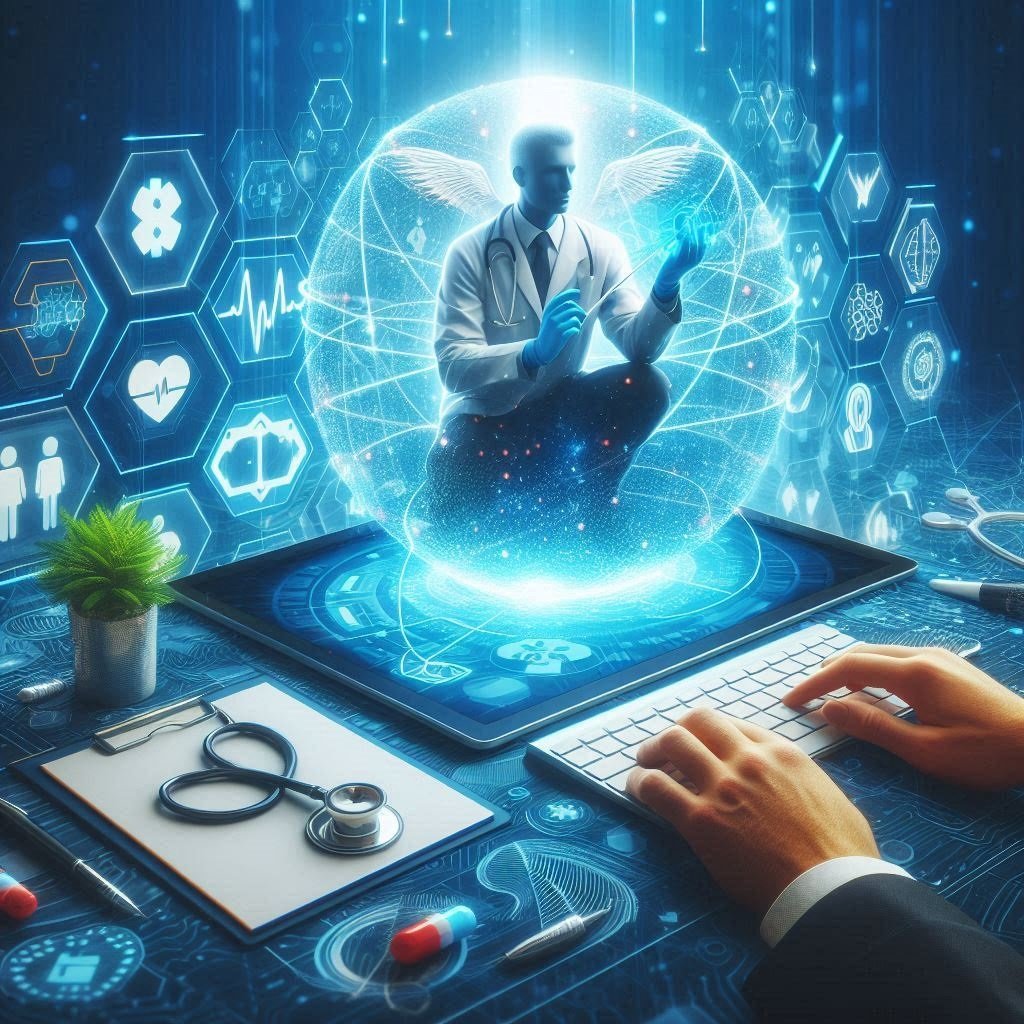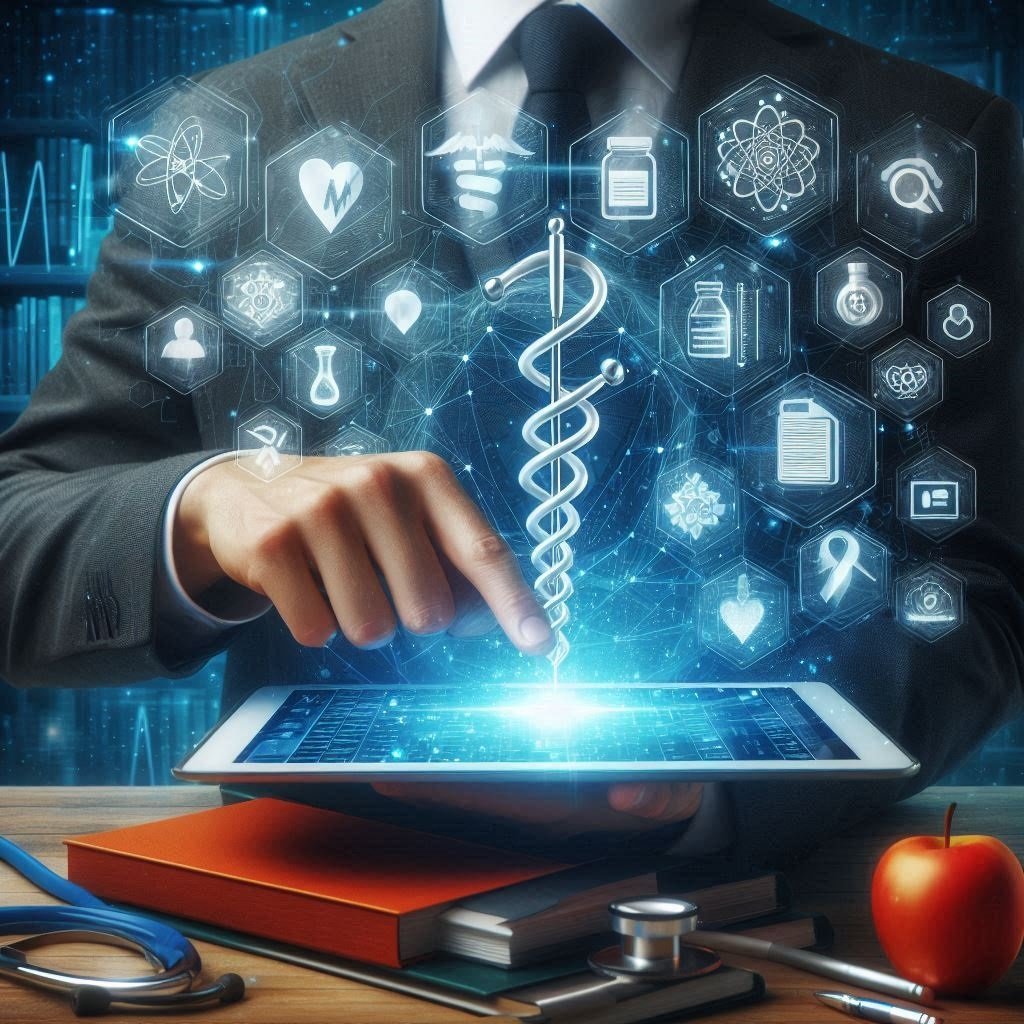Health informatics is transforming the way healthcare is delivered. It merges healthcare, information technology, and data management to create systems that improve patient care. If you’re curious about how technology can enhance healthcare, you’re in the right place. This guide will explain what health informatics is, its benefits, and how you can start a career in this exciting field.
What is Health Informatics?
Health informatics is the intersection of healthcare and information technology. It involves the collection, storage, and analysis of health data. This field uses data to improve patient outcomes, enhance healthcare services, and streamline operations.
Health informatics includes:
- Electronic Health Records (EHRs): Digital versions of patients’ paper charts.
- Telemedicine: Providing remote clinical services via telecommunications.
- Health Information Exchange (HIE): Sharing patient information among different healthcare organizations.
- Clinical Decision Support (CDS): Systems that help healthcare providers make decisions.

Why is Health Informatics Important?
Health informatics is crucial for several reasons:
- Improves Patient Care: With accurate and timely data, healthcare providers can make better decisions.
- Reduces Errors: Automated systems reduce human error.
- Streamlines Workflows: Efficient data management saves time and resources.
- Enhances Communication: Better data sharing improves coordination among healthcare providers.
- Supports Public Health: Data analysis can identify trends and support disease prevention efforts.
Benefits of Health Informatics
Better Patient Outcomes
Health informatics ensures that patient information is accurate and accessible. This helps doctors provide the best care. For example, EHRs provide a complete history of a patient’s health, which is crucial in emergencies.
Enhanced Efficiency
By automating routine tasks, health informatics frees up time for healthcare providers. They can focus more on patient care and less on paperwork. This leads to a more efficient healthcare system.
Improved Data Management
Health informatics makes it easier to collect and analyze data. This data can be used to track patient outcomes, improve treatments, and conduct research. Better data management also ensures compliance with regulations.
Cost Savings
Efficient data management can reduce healthcare costs. By eliminating unnecessary tests and procedures, health informatics helps in cutting down expenses. It also reduces administrative costs by automating tasks.
Better Public Health
Health informatics can identify disease outbreaks and track health trends. This is vital for public health planning and response. For example, during the COVID-19 pandemic, data analytics helped in tracking the spread and planning interventions.
How to Get Started in Health Informatics
Education and Training
To start a career in health informatics, you need the right education. Here are some steps to guide you:
- Earn a Relevant Degree: A bachelor’s degree in health informatics, computer science, or a related field is a good start. Many universities offer specialized programs in health informatics.
- Get Certified: Certification can enhance your credentials. Some popular certifications include Certified Health Data Analyst (CHDA) and Registered Health Information Administrator (RHIA).
- Gain Experience: Practical experience is crucial. Internships, volunteer work, and entry-level positions can provide valuable insights into the field.
- Continue Learning: Health informatics is an evolving field. Staying updated with the latest trends and technologies is important. Consider pursuing advanced degrees or continuous education courses.
Skills Required
Health informatics professionals need a mix of skills. These include:
- Technical Skills: Knowledge of IT systems, databases, and software.
- Analytical Skills: Ability to analyze data and draw meaningful conclusions.
- Communication Skills: Ability to convey information clearly to different stakeholders.
- Problem-Solving Skills: Ability to identify problems and develop effective solutions.
- Attention to Detail: Ensuring accuracy in data management.
Career Opportunities
There are many career paths in health informatics. Some of the roles include:
- Health Informatics Specialist: Works with health data systems and ensures their efficient use.
- Clinical Informaticist: Focuses on the application of informatics in clinical settings.
- Health Data Analyst: Analyzes health data to improve patient care and operational efficiency.
- EHR Implementation Specialist: Helps in the adoption and optimization of electronic health records systems.
The Future of Health Informatics
The future of health informatics is promising. Technological advancements continue to drive the field forward. Here are some trends to watch:
Artificial Intelligence (AI) and Machine Learning (ML)
AI and ML are revolutionizing health informatics. They can analyze large volumes of data quickly. This helps in predicting patient outcomes, personalizing treatments, and improving diagnostics.
Telehealth
The use of telehealth has increased significantly. It allows patients to receive care remotely. Health informatics plays a crucial role in telehealth by managing patient data and ensuring secure communication.
Wearable Technology
Wearable devices like fitness trackers and smartwatches collect health data. This data can be integrated into health informatics systems. It helps in monitoring patients and providing personalized care.
Blockchain Technology
Blockchain ensures secure and transparent data sharing. It can enhance the security of health data and facilitate health information exchange.
Genomics and Personalized Medicine
Health informatics is essential in genomics and personalized medicine. It helps in managing and analyzing genetic data. This leads to more precise and personalized treatments.
Challenges in Health Informatics
Despite its benefits, health informatics faces several challenges:
Data Privacy and Security
Protecting patient data is crucial. Health informatics systems must comply with regulations like HIPAA. Ensuring data security and privacy is a constant challenge.
Interoperability
Different healthcare systems must work together seamlessly. Achieving interoperability between various health informatics systems can be difficult.
Change Management
Implementing new technologies requires change management. Healthcare providers need training and support to adapt to new systems.
Data Quality
Ensuring the accuracy and completeness of health data is vital. Poor data quality can lead to incorrect conclusions and decisions.
Cost
Implementing health informatics systems can be expensive. However, the long-term benefits often outweigh the initial costs.
Conclusion
Health informatics is revolutionizing healthcare. It improves patient care, enhances efficiency, and supports public health. With the right education and skills, you can start a rewarding career in this field. The future of health informatics is bright, with exciting advancements on the horizon. Embrace the future of healthcare and explore the world of health informatics.
